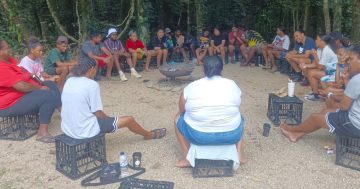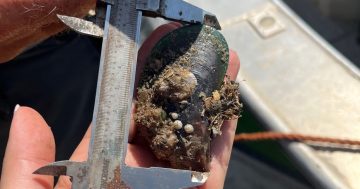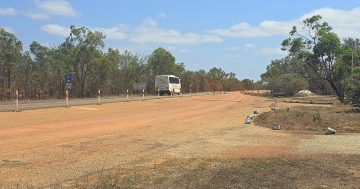
Four NPA youth heard from biosecurity experts and shared their own ideas at the first Biosecurity Youth Summit. Photo: Supplied.
Four Northern Peninsula Area (NPA) youth are ready to have their say on the planet’s future after attending the inaugural Biosecurity Youth Summit on the Gold Coast in late August.
The two-day event brought together 39 year 10 students from across the state, with an aim to raise awareness about potential threats, empower young people to act, incorporate their perspectives and ideas into the biosecurity system, and provide future employment pathways.
Department of Agriculture and Fisheries Far North biosecurity director Emma Atkins said she hoped the young people were inspired to actively contribute to biosecurity in their communities.
“Education and awareness are vitally important to increasing public knowledge of biosecurity risks, and how they can do their part in protecting Cape York,” she said.
“The summit provided a valuable platform for them to voice their unique perspectives and engage with issues that directly affect them.
“The young people clearly demonstrated their strong environmental conscience, so are well-positioned to champion biosecurity initiatives.”
Ms Atkins, who is based in the NPA, said there were several factors that made biosecurity measures in the northern Cape York region important.
She listed the high levels of domestic and international travel, neighbouring countries, and a climate suited to pests and diseases as some of the main threats.
“Indonesia and Papua New Guinea have a significant number of high-priority plant and animal pests and diseases,” she explained.
“Tropical climate and biodiversity suit a range of pests and diseases, [and] adverse weather conditions, such as cyclones, increases the risk of pests and diseases which may be airborne or spread by insects or ocean currents.
“The vast, remote areas and coastlines make surveillance for early detection more difficult.”
Ms Atkins also said food security and way of life in community were major priorities, with the NPA’s high cost of living and heavy reliance on land and sea for food and cultural practices.
“Biosecurity risks have the potential to threaten the environment, economy and way of life, so it is important that young people understand the increasing risks and lean in to protect what they value in their community,” she said.
“There are numerous job opportunities in the region in the biosecurity space; it is great to showcase these to young people so that they can see alternative career paths, and how varied and exciting biosecurity can be.
“We hope they will take the lead in promoting biosecurity practices within their community, from raising awareness about the importance of protecting our ecosystems, to taking direct action in reducing risks to people, animals and the environment.”











